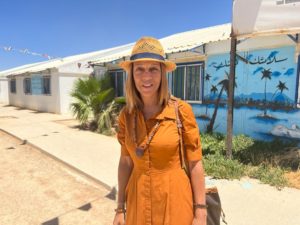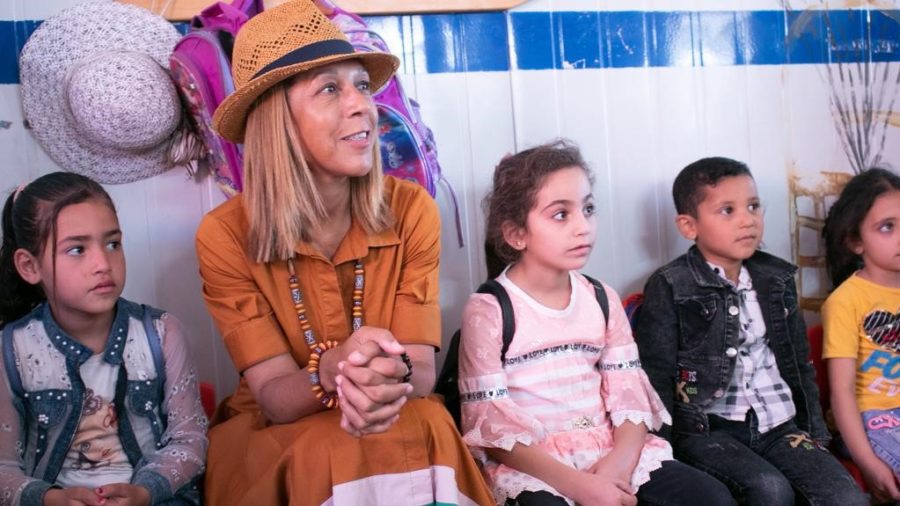
In my role as the Prime Minister’s Special Envoy for Girls’ Education I have been lucky enough to visit many countries across Africa and Asia. Last week I was privileged to visit Jordan for the first time and got to meet children being supported by UK aid to get an education even in challenging settings affected by conflict. As I travelled across the country meeting girls, their teachers, community members, and members of government, I learnt more about the education challenges Jordan faces and was struck by the passion and commitment of those I met who are working hard to get the foundations right for all children so that they can reach their potential.
My visit to Jordan was timely, coinciding with World Refugee Day where I spent time at Zaatari Camp, the world’s largest camp for Syrian Refugees. Tragically, over 70% of Syrian refugee children in Jordan do not attend secondary school and vulnerable refugee girls have been hit the hardest by learning loss due to COVID-19, which in Jordan has resulted in almost two years of continuous school closures.
The UK has led international efforts to ensure that all children have access to education – regardless of nationality – in Jordan. I saw this first hand at Zaatari when I observed a group of 5-year-old boys and girls learning to read and write. I was proud to see how British support through the Accelerated Access Initiative (AAI) was providing the foundational learning building blocks for around 190,000 Syrian and other refugee children in the last year alone to make progress and support them to go on and reap the full rewards of education.
The UK is continuing its support to education in Jordan. The new Education Research in Conflict and Protracted Crises programme (ERICC) will build on this success, producing crucial evidence on what works for improving education for boys and girls in host and refugee communities in Jordan. Meanwhile, a further £30 million through the new education programme: BRIDGE, will support inclusive education for the most vulnerable girls in Jordan as well as much needed system strengthening for the Ministry of Education.
I was inspired to hear female Syrian teenage students’ aspirations and dreams as they spoke of their desire to become the next generation’s politicians, dentists, translators, and heart surgeons. I also learnt of the immeasurable challenges they had overcome to access an education. They demonstrate the need to invest in girls’ education in crisis-affected countries; only 27% of refugee girls are enrolled in secondary schools and 20 million girls are at risk of dropping out in the next year due to conflict and crisis. Out-of-school girls are at greater risk of violence, sexual abuse, early and forced marriage and human trafficking. We need to ensure that all children, particularly marginalised girls, are in education and are learning – then they have the foundations to reap the rewards of future wider education and they are less likely to drop out if they and their families can see that they are learning to read and write early on.
Whilst there are great efforts in Jordan to support girls into education, I was struck in discussions with the Jordanian women I met during my visit by the need for greater focus on the vital link between girls’ education and women’s economic empowerment. With just 15% of women in Jordan currently contributing to the workforce, supporting sustainable livelihoods for women is critical for them, for Jordan’s long-term prosperity, and for turning the aspirations of the girls I met in Zaatari, into a reality.
We must ensure these girls are equipped to fulfil their lifelong potential by getting the foundations right when they are young – ensuring they can read and write. We are working with partners to ensure that foundational learning is prioritised as a key outcome of the UN’s Transforming Education Summit in September.

